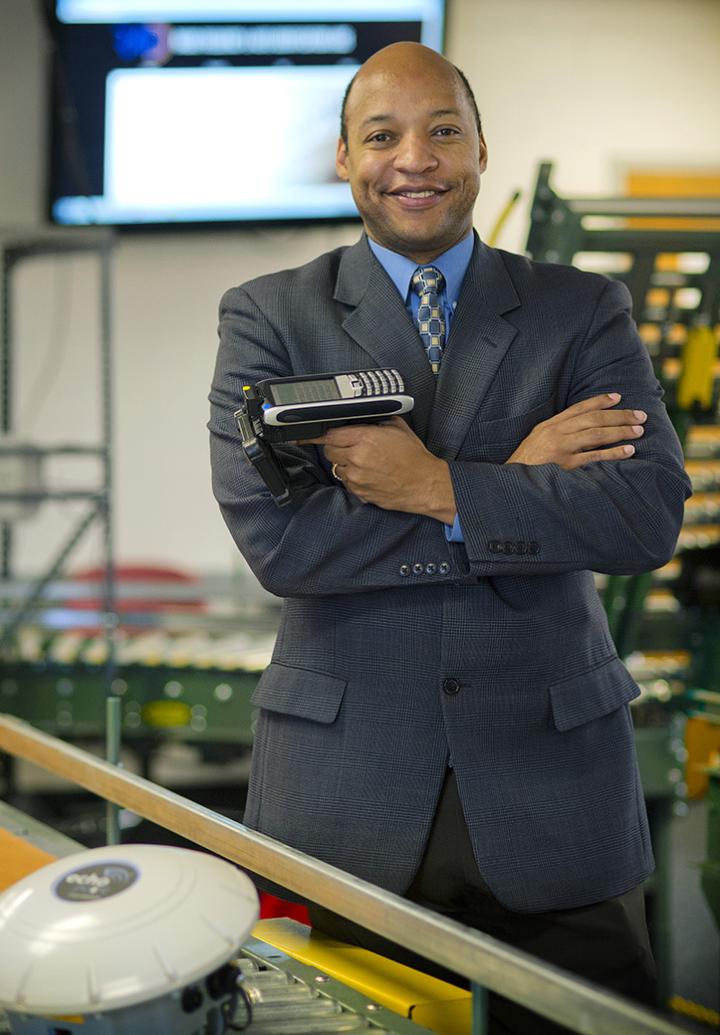A supply chain for COVID-19 medication

Credit: UT Arlington
Working with artificial intelligence, a University of Texas at Arlington researcher is developing a rapid-response supply chain designed to quickly deliver COVID-19 medications, once they are available, to vulnerable urban populations in Texas.
This collaborative public health project among UTA, the city of Houston and the National Science Foundation (NSF) has the potential to get needed treatments into the hands of the most critically ill and at-risk populations and prevent hospital facilities from becoming overwhelmed, said Erick Jones, professor of industrial, manufacturing and systems engineering at UTA.
“We’ve seen that hospital capacity is being strained with elderly people or those with no other health care options,” Jones said. “If we could provide medications to the people who are most at-risk and least likely to easily access them, and ensure that they are being taken as intended, it will free up capacity for people who need ventilators.”
Jones, who also serves as associate dean for graduate affairs in the College of Engineering, received a two-year NSF Early-Concept Grant for Exploratory Research for $199,993. These awards, known as EAGER grants, support research on untested but potentially transformative ideas or approaches, allowing researchers to rapidly test potential high-risk/high-reward ideas that could lead to more expansive research and innovation.
Jones will investigate methods that integrate AI, data science and automatic data capture technologies to create a map showing where at-risk, underserved patients reside in Houston and how and if they are taking their medications. He then can design supply chains that safely and effectively deliver coronavirus medication to vulnerable residents.
Jones’ work focuses on creating a real-time map that allows the Houston Health Department to supply medication to people who are critically ill first. It will also present a more detailed picture of who is at risk of contracting the disease or who may have contracted it.
“Ultimately, the Health Department is trying to minimize impact and confirm that people are taking prescribed medications to lessen the risk that they’ll contract or spread the disease,” Jones said.
Jones has previously worked with the Houston Health Department to redesign its supply chains and is familiar with how social workers get medicine to underserved patients. COVID-19 has disrupted these processes, however, because in-person visits aren’t safe for social workers or patients.
Jones wants to design a process where anti-COVID-19 drugs, once available, can be delivered to a central point in a neighborhood for pickup. Then, doctors or social workers could visit with patients via telemedicine, verify that the medication is correct and witness the patient take the medicine to ensure that it is being used as instructed.
“The current worldwide health crisis caused by COVID-19 has caused a major disruption of the global supply chain,” said Paul Componation, chair of the Industrial, Manufacturing and Systems Engineering Department. “Dr. Jones’ research could allow fast, safe, effective distribution of treatment for this disease to our communities’ most-vulnerable populations, which could help save lives through early intervention and engagement.”
###
– Written by Jeremy Agor, College of Engineering
Media Contact
Herb Booth
[email protected]
Original Source
https:/




